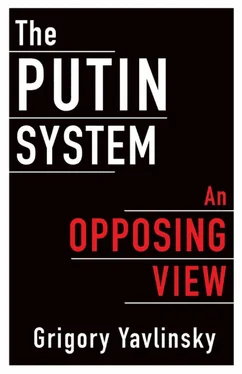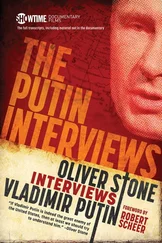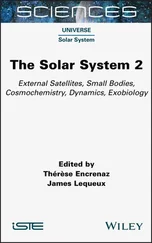PUTIN’S THIRD TERM AND HIS NEW SET OF POLICIES
Identifying and describing the highest-probability scenarios for the future has been made simpler by the fact that, starting in 2014, Putin’s authoritarian tendencies, which had been dormant or barely nascent over the previous ten to fifteen years, have now come to the fore. Earlier, it was not clear how fast they might develop and how far they might go. Even now, there is still no full clarity in this regard, but at least Putin’s authoritarian impulse has emerged in a much more discernible way, and the probability that the current direction of developments will be reversed is many times lower than it used to be.
What I mean is mainly the sum total of the facts that have become clear to Russians since 2012, once the so-called castling of 2008 (whereby Vladimir Putin and Dmitry Medvedev switched their official positions, with Putin becoming prime minister and Medvedev president) was reversed and Putin began his third presidential term as the undisputed head of Russia’s ruling circle. This may be labeled Putin’s new agenda, but in reality there is nothing fundamentally new about it; it is just an acceleration and a continuous unshackling of the trends that were already inherent in the political system and the public consciousness.
Russia’s ruling circle has intensified its ideological and political confrontation with the center of the global capitalism, and, as players in world politics, they have conspicuously refused to abide by the rules proposed by the center. These elites have been striving to develop their own official ideology and to actually make it the government ideology, that is, to impose and defend it with all the might of government resources and power. They have tended not just to put a squeeze upon any organized alternative political current but also to restrict as much as possible all kinds of opposition, including intellectual opposition, which has no real resources that would enable it to pose any noticeable threat to the authorities.
It is easily noted that all these trends are closely intertwined, so that each of them makes perfect sense in light of the others, while also reinforcing them. The outcome is a quite powerful trend pushing the system as a whole toward totalitarianism, even if it is not as in-your-face as the most familiar twentieth-century political systems of this kind. In any case, the model of the political organization of society toward which Russia has been clearly drifting in the past several years contains several features of totalitarian systems. These features include the dominance of one set of views in the public sphere, affirmed and protected by the government, and the portrayal of any alternative views as inimical to the state and the people. The government also has a tendency toward the deliberate isolation of society from all external influences, which are interpreted as being directed against the nation, hostile, and debilitating for society and the country, as they induce Russians to commit treason. I also observe the brainwashing of the public to believe in these mythical threats even as they also face real ones. In sum, the people at the top of the power system are increasingly portrayed to the Russian people as the supreme authority, whose decisions can no longer be questioned.
THE OUTSIDE WORLD AS THE ENEMY
The first element of Putin’s new set of policies, noted earlier, is its orientation toward an outwardly uncompromising rejection of the rules of international politics that are set by the powers of the global capitalist “core”—the United States and the large European powers that determine the policies of the European Union. Plainly, this attitude is nothing completely new, nor is it unexpected. The critique of the rules of the game established by the West has been an important component of post-Soviet Russia’s domestic and foreign policy for at least the past fifteen years. Suffice it to recall such incidents from the recent history of international relations as the crisis in the former Yugoslavia, and the EU and NATO interference in that crisis; the war of the NATO members against the regime of Saddam Hussein and the subsequent occupation of Iraq; the tense arguments between Russia and the United States over the deployment of American antimissile defense systems; the enlargement of NATO through its incorporation of Eastern Europe; the Russian–Georgian conflict of 2008, resulting in large-scale military operations; and so on.
Each of these events led to acute disagreements between Russia and leading Western powers. These disagreements not only narrowed the opportunity for potential constructive interaction between the two sides but also were actively exploited by all parties in the process of shaping their domestic public opinion. Every time these disagreements sharpened, both sides became increasingly convinced that there was not and could not be a consensus about the rules of behavior in situations of conflict, and thus that any diplomatic efforts to reduce the differences, or at least to find some common ground on issues, could only have a limited and temporary effect.
Meanwhile, the Western powers predictably assumed, as something self-evident, that their role as the core of world capitalism (and thus of the contemporary world as a whole) entitled them to use their advantage to set the rules of international behavior according to their own perceptions of justice and international law. Thus, they viewed anybody else’s attempts to resist playing by the rules established in this manner as negative behavior, and they considered the initiators of these attempts to be, at best, spoilers of the West’s political triumph and, at worst, enemies trying to subvert the established world order. Even before recent allegations of Russian interference in European and American elections, Western countries had settled upon a view of Russia as intent upon spoiling their party. For their part, Russia’s leadership and the public opinion that it controls had convinced themselves that playing by the West’s rules is of no benefit for Russia but in fact works to Russia’s detriment, leading to losses every single time.
Yet, starting in about 2013 or 2014, the disagreements between Russia and the West became increasingly acute. With every turn of events around Libya and Syria, and then with the intense political crisis in Ukraine, [3] I intentionally use the word “Ukraine” without the article “the” for political reasons.
the Kremlin became convinced that Russia’s subordination to the rules that were being set by the West could only lead to Western disregard of the Kremlin’s opinion and interests, as understood by its denizens. When the Kremlin takes what the West considers a “constructive” stance, Russia does not and cannot derive any benefit from it, and neither would it be compensated by anyone, in any way, for its potential losses. Thus, rather than trying to adapt to the Western rules, it makes more sense for Russia’s leadership to act entirely at its own discretion, at least within the limits set by their available resources. As for the international (Western) response to their actions, Russian elites believe that they should simply be ignored.
Essentially, this was precisely the Kremlin’s position on the issue of Syria. It did the same, except even more explicitly, and even defiantly vis-à-vis the West, in its response to the political crisis in Ukraine and the attempts by Western politicians to find a resolution to this crisis without deference to the Kremlin’s position and interests. These attempts were perceived as a particularly painful slight, as an expression of total disrespect for the Russian political elite’s expectations about how the Western community of countries should treat Russia— requirements that the elite saw as unquestionably justified by history. [4] As Putin expressed it, in his remarks in the Kremlin about the Crimean situation, “Russia felt that it had not been just robbed but that it had been plundered.” Vladimir Putin, “Address of the President of the Russian Federation” [in Russian], Kremlin.ru, March 18, 2014, http://www.kremlin.ru/events/president/news/20603 .
Читать дальше












